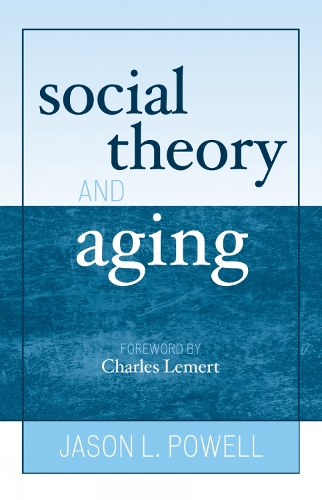
Social Theory and Aging
(Paperback)
Publishing Details
Social Theory and Aging
By (Author) Jason L. Powell
Bloomsbury Publishing PLC
Rowman & Littlefield Publishers
17th November 2005
United States
Classifications
Tertiary Education
Non Fiction
305.26
Physical Properties
Paperback
160
Width 171mm, Height 227mm, Spine 13mm
254g
Description
This book explores both conceptual and theoretical issues that impinge on understanding aging in (post) modern society. It analyses how knowledge formation of aging, with particular reference to 'old age' in contemporary western society, is socially constituted and positioned by powerful 'taken for granted assumptions'. These assumptions have provided a power/knowledge base for bio-medical disciplines, legitimacy of political-economic discourses and practices of professional experts. The book is in two parts: the first part introduces 'modernist' scientific models and theories of gerontology and questions their importance in mapping out the assumptions of aging and how they impinge on identity performance in society through disciplinary matrix of biology, psychology and social conceptualizations of gerontology; the second part focus upon 'postmodern' constructions aging through the articulation and development of novel epistemologies: postmodernism and aging body; discourse and power/knowledge; and 'aging' in the 'risk society'. The book addresses a key question: can 'meta-theories' provide an effective analysis of aging which is radically different from modernist 'grand narratives' as epitomized by not only bio-medical models of aging but also of mainstream social theories of gerontology.
Reviews
This book will contribute most significantly to our reinterpretation of aging and how it is thought about in social work This is a wonderfully welcome addition to the literature on aging. -- Allen Irving, University of Western Ontario
Author Bio
Jason L. Powell is Lecturer in Sociology at the University of Liverpool, UK. He formerly worked at MMU as Senior Lecturer and at Salford University were he was appointed as Associate Head of School (Teaching and Learning) and Director of Admissions. He has published extensively on social theory and ageing in research articles and book chapters.
